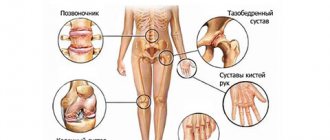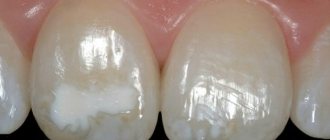Vaginismus of inorganic origin (F52.5 according to ICD-10) is the most common type of disease than that caused by somatic pathology. As a rule, vaginismus occurs as a result of physical violence, painful sexual intercourse, or under the influence of stereotypes instilled at a young age.
In married couples, the cause of vaginismus is usually protracted conflicts between spouses, coercion to fulfill “marital duty,” “marriage of convenience,” or sexual dysfunction in a man.
Treatment of vaginismus includes individual work with a sexologist, family sessions (if the woman is married or has a regular partner), and, if desired, a visit to an open psychotherapeutic group. The main methods of treating vaginismus include: cognitive-behavioral (proven effectiveness, approved by WHO), rational, pathogenetic and systemic desensitizing psychotherapy.
It is important to understand that vaginismus is a problem that affects not only the psycho-emotional sphere and sexual life of a woman. Vaginismus often affects the partner’s health, not to mention the relationship. As a rule, in 25% of cases in such couples, men experience sexual dysfunction, as well as some reversible mental disorders.
Consultation with a doctor for the treatment of vaginismus:
+7
Thank you for your trust!
- Harmonization of sexual life
- Solving problems in the intimate sphere
- Help in crisis situations
| Service | Price |
| Appointment with a sexologist | 4 500 ₽ |
| Reception of the chief physician, associate professor A.V. Bocharov | 6 000 ₽ |
Vaginismus
Female vaginismus is a reflex spasm of the genital muscles (mainly the pubococcygeus muscle) and elevation of the anus.
This leads to difficulty or impossibility of both sexual intercourse and gynecological interventions. Approximately 3% of women suffer from sexual neurosis, in which the muscles of the pelvic organs involuntarily and systemically contract. Treatment of vaginismus is individual, always carried out in a complex - you need to contact not only a gynecologist, but also a psychotherapist, sexologist, and sometimes a proctologist. All these specialists work at the Sinai Clinic, where you can always turn to solve delicate problems. Experienced doctors will find out the causes of the disease and prescribe effective treatment in accordance with the individual characteristics of the patient.
Therapy methods
Treatment methods for true colcospasm include:
- psychotherapeutic sessions;
- explanatory conversations;
- hypnosis;
- education on issues of sexual relations between the sexes and popularization of the culture of sex;
- reflexology;
- physical gymnastics to relax the muscles of the hips and pelvis;
- breathing exercises.
In some cases, tranquilizers, antidepressants, bromine, etc. are prescribed. The main task in the treatment of hysterical vaginismus is to eliminate the source of stress and eradicate the traumatic motive. The medical prognosis for the treatment of colcospasm is quite positive: most patients experience normalization of their sex life, and the fear of visiting a gynecologist disappears. Women discover new perspectives in physical communication with a man. They are aware of the positive aspects of sex and can plan a child.
Vaginismus causes
According to experts, acute vaginismus is caused by a protective reaction of the body in the form of a reflex. The reaction occurs with fear of defloration, pain during sex, or gynecological manipulations. The muscles of the vagina and the walls of the peritoneum involuntarily contract for a short or long time, the thighs are reduced. It is important to distinguish the disease from the following deviations:
- coitophobia – reluctance, fear of sexual intercourse;
- pseudovaginismus - mechanical contraction of muscles as a reaction to pain;
- anatomical abnormalities of the vagina;
- sexual diseases: colpitis, bartholinitis, genital herpes, scars, adhesions.
The problem against the background of vaginismus is virgogamy - virgin marriage. In the absence of help, a woman may develop a complex that she is sexually inferior.
Experiencing vaginismus and involuntary contractions can lead to a woman falling into a vicious circle. For example, a girl learns that there will be pain during sex. Therefore, she will wait for the first sexual intercourse with this feeling, which may result in vaginismus. If intercourse occurs, muscle spasm will lead to pain. Further attempts will also confirm that the pain is palpable, fear of it will worsen the condition.
Vaginismus can be primary or secondary:
1. Primary - occurs in virgins, in women who have not experienced sex with vaginal penetration, have not used tampons, or have not gone to a gynecologist to have a smear taken. Patients are unaware of their illness, so the discovery of this abnormality confuses them. Causes of primary vaginismus: abuse of non-vaginal sex, suggestion of immorality or vulgarity of sex, fear of pain when the hymen ruptures, latent homosexuality, mental abnormalities.
2. Secondary - occurs in women who have already had penetration, after which vaginismus developed. Causes: fungal infection, trauma after childbirth, psychological abnormalities. Treatment of the secondary type does not differ from the primary one, although it is easier due to the fact that penetration has already been successful. The patient's condition with the secondary type improves faster.
Vaginismus often occurs against the background of erectile dysfunction of the partner. But it is quite difficult for doctors to confirm that an involuntary spasm appears before unsuccessful sex or against the background of a woman’s strong disappointment in her husband due to unsuccessful erections. Primary erectile dysfunction and vaginismus may precede each other, but in the presence of these conditions, marriage is unlikely to be perfect. Then sexual dysfunctions manifest themselves in other ways.
If there was a severe degree of vaginismus before trying to get married, then the result is primary or secondary erectile dysfunction due to the fact that failures during insertion are repeated again and again. In many married couples, involuntary vaginal spasms may be present for several years, although there is no disorder on the part of the man. Then the man has to be content with orgasm with ejaculation with minimal or partial penetration. And the degree of vaginismus is such that it only leads to a delay in penetration, but does not interfere with the further process.
The prevalence of vaginismus varies by region. On average it is 3-6%. In old age, the disorder occurs in 2% of cases. In youth, this figure increases to 18-20%. The figure depends on the culture accepted in society.
Biopsychosocial approach
This approach can be summarized as an integrated pain model that focuses on the physical and psychological factors that may precipitate dyspareunia symptoms or contribute to their chronicity. The optimal approach is to use the “Social Learning” and “Active Conditioned Connections” models, taking into account the formation of conditioned connections with pain, psychological and physical factors. The Learning Theory states that incorrect or negative expectations associated with sexual intercourse come from a lack of learning or from improper learning. Developmental theory focuses on the formation of negative views through experiences early in life. The Active Conditioning model assumes that negative events occur (for example, a woman had a painful experience in sex) that cause a negative conditioned reaction. As a result, dissatisfaction increases, excitability decreases, and sexual contacts become painful. According to the Active Conditioning model, a woman initially does not have negative expectations, feelings or ideas.
Because dyspareunia can be "difficult and emotional" for the patient, the doctor must first ensure that the patient is willing to discuss the problem in detail. The interview should be impartial and thorough, starting with a general medical and surgical history, moving on to gynecological and obstetric history, as well as a detailed sexual history. The details may help determine the cause.
Make an appointment
Make an appointment with a gynecologist by calling 8(812)952-99-95 or filling out the online form - the administrator will contact you to confirm your appointment
guarantees complete confidentiality
What does a gynecologist/urogynecologist need for a qualified approach to your problem (there is an age criterion):
- Careful history taking
- Physical examination
- Ultrasound of the pelvic organs
- Collection of tests for
- STDs (hidden infections)
- Microflora smears
- Smears for hormonal status
- Possibly MRI (magnetic resonance imaging of the pelvic organs)
- Intestinal examinations (sigmoidoscopy, colonoscopy...)
- Consultations of related specialists (endocrinologist, gastroenterologist, neurologist...)
Vaginismus: what to do
Before you figure out how to treat vaginismus, you need to find out its causes. Often they come down only to emotions - the psychogenic nature of the disease. Vaginismus in women manifests itself against the background of intrapsychic, interpersonal motives and a pathological attitude towards sex. Often this is the result of religious, personal prejudices, lack of sympathy for a partner, a consequence of violence or aggression. But the disease can also accompany:
- depression;
- thyrotoxicosis;
- traumatic cerebrovascular disease;
- psychasthenia.
If a woman has obsessive neurosis, then vaginismus manifests itself as a phobia, which is associated with the fear of sexual intercourse or a gynecological procedure. Colcospasm often occurs in patients with an increased degree of suspiciousness, with a permanent state of anxiety, and with a hysterical psychotype. In the latter, vaginismus manifests itself against the background of erectile dysfunction of a partner, early, sometimes forced marriage.
Vaginismus: symptoms
Signs of vaginismus mainly appear through contact or even simple touching. At the same time, the muscles of their genitals and pelvis contract sharply uncontrollably. Diagnosis of the disease is possible only in women who are examined by a gynecologist and have begun/or already have experience of sexual activity. In other situations, it is simply impossible to establish the disease.
When vaginismus occurs, spasm occurs reflexively, so it is impossible to insert the gynecologist’s instruments, or even a tampon, not to mention penetration of the penis. Vaginismus can also occur during sexual intercourse, making it impossible to remove the penis from the vagina on your own. Against the background of convulsive compression, the partner may suffer from swelling and tissue damage.
What questions will the doctor ask you:
| Description of pain |
|
| Questions about medical history |
|
| Possible medical causes |
|
Women who need counseling for dyspareunia can be identified by asking a woman during a routine visit to her doctor whether she enjoys sexual intercourse or, conversely, experiences discomfort.
In order to outline adequate treatment measures, it can be useful to find out how long the problem has existed and whether similar violations have been repeated with other sexual partners. There are no reasonable grounds to make a judgment about the monogamous nature of sexual life and heterosexual orientation. The purpose of collecting anamnesis is to determine general medical and gynecological causes of pain, as well as to identify sexual disorders and collect psychosocial information.
Physical examination
A physical examination of the pelvic organs can be postponed if the initial visit reveals significant pain. It is extremely important to allow patients to control the situation themselves, that is, patients need to be explained that the examination can be stopped at any time, at their request. Many women do not have sufficient knowledge about the structure and function of the pelvic organs, so during the examination they can be given the opportunity to see the picture being examined using a mirror, thereby the woman will take part in the examination and gain knowledge about herself.
If pain appears during the examination, the doctor has the opportunity to clarify whether this pain is similar to pain from sexual intercourse. Particular attention should be paid to the external genital structures, noting any pathological formations, leukoplakia or erythema. In patients with vulvar disease, the vulvar area may be very painful and the woman may not be able to tolerate the insertion of a speculum. The doctor should carefully examine the vulvar area and Bartholin's glands, Skene's ducts, urethra and external opening using an applicator with a wet cotton tip. Areas of erythema and tenderness should be noted. Some women have small papillae on the skin of the vestibule, which are a variant of the norm, and not a sign of a viral or any other disease.
Vaginismus: how to cope
Diagnosis of the disease is possible after interviewing the patient, collecting complaints and anamnesis. In total, there are 3 stages of the disease:
1. Mild – muscle spasm as a reaction to the insertion of a penis, tampon, or gynecologist’s instruments.
2. Medium - a reflex upon contact or even simple touching of the penis with the vagina.
3. Severe - the muscles contract convulsively even at the thought that there will be coitus or gynecological intervention.
The last stage is very rare, during which the muscles contract even at the thought of going to the gynecologist or having coitus. Therefore, examination, taking a smear and other manipulations by a doctor are performed on a woman under general anesthesia. Is vaginismus treated: yes, but complexly. It is unlikely that you will be able to overcome an attack of the disease on your own, and you should not try to do so. This will only increase psychopathy, and if intercourse is attempted, the situation may end in self-harm on both sides.
Diagnosis and treatment of vaginismus - at Med City
What is vaginismus is well understood by the specialists of the Kyiv laser surgery clinic “Med City”. A full course of diagnosis and treatment of gynecological and psychosexual problems is offered by specialized doctors from one of the leading Ukrainian centers. Signing up for a consultation means taking the first step towards your recovery. We guarantee a high level of medical services, professional competence of doctors and reasonable prices. Call or inquire about specialist appointments online. Privacy Policy is our corporate credo!







